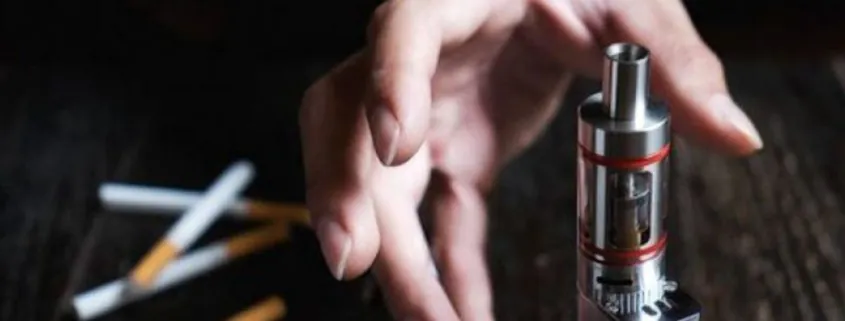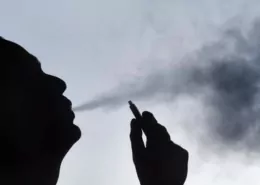Indonesia Maintains Tobacco Excise Tax Rates for 2025
Indonesia will not raise excise tax rates for tobacco products in 2025 and will instead consider alternative policies to discourage smoking, including changes in retail prices, according to Askolani, the director general of customs and excise at the finance ministry. The country will maintain the 2024 excise rates for tobacco products in the following year.
In recent years, Indonesia has consistently raised tobacco excise rates annually to reduce smoking rates among its youth. However, Askolani stated that while the rates will not be adjusted in 2025, the government will explore other policies, such as retail price adjustments, to curb cigarette consumption. The timeline for introducing such policies remains undisclosed.
A 2023 health ministry survey revealed that Indonesia had 70 million smokers among its population of about 280 million people, with 7.8 percent of smokers aged between 10 and 18. In 2023 and 2024, Indonesia raised tobacco excise tax rates by an average of 10 percent each year to control cigarette consumption.
Indef Criticizes Plain Cigarette Packaging, Warns of Economic Impact
The Institute for Development of Economics and Finance (Indef) has criticized Government Regulation (PP) Number 28 of 2024 concerning the Implementation of Law Number 17 of 2023 on Health and its derivative products, such as the Draft Regulation of the Minister of Health (RPMK) on Tobacco Products and Electronic Cigarettes.
Indef warns that if the government does not revise PP 28/2024 and cancels the Minister of Health’s Regulation on tobacco and electronic cigarette products, Indonesia could lose Rp308 trillion. The institute particularly opposes the proposed plain cigarette packaging without branding in the RPMK, which they estimate will result in a lost economic impact of Rp182.2 trillion.
Plain cigarette packaging is expected to accelerate downtrading (a phenomenon where consumers switch to cheaper cigarette products) and switching to illegal cigarettes by 2-3 times, potentially reducing legal product demand by 42.09 percent. The implications of this policy are predicted to reduce state revenue by around Rp95.6 trillion, cause a lost economic impact of Rp182.2 trillion, and affect 1.22 million workers in all related sectors.
Indef also criticizes the ban on selling cigarettes within a 200-meter radius of educational centers (from early childhood education to high school) and playgrounds, which is estimated to affect 33.08 percent of total retail cigarette sales. This ban could reduce state revenue by around Rp43.5 trillion, result in a lost economic impact of Rp84 trillion, and impact 734,000 people/workers.
Restrictions on cigarette advertising in PP 28/2024 are expected to reduce advertising service demand by 15 percent, decrease state revenue by Rp21.5 trillion, cause a lost economic impact of Rp41.8 trillion, and affect 337,730 people/workers.
If all three scenarios are implemented, the lost economic impact could amount to Rp308 trillion, or 1.5 percent of the Gross Domestic Product (GDP), and reduce tax revenue by Rp160.6 trillion, or 7 percent of total tax revenue. The potential workforce affected by these scenarios is estimated at 2.29 million people, or 1.6 percent of the total employed population.
Indef recommends revising PP 28/2024, canceling the RPMK, and encouraging dialogue among relevant ministries/institutions and related industries to strike a balance between state revenue, industry, labor, and health considerations.
Health Minister Responds to Plain Cigarette Packaging Concerns
Health Minister Budi Gunadi Sadikin has responded to the controversy surrounding the proposed plain cigarette packaging regulations. The RPMK regarding plain cigarette packaging has faced opposition from entrepreneurs and is still under review.
Budi Gunadi stated that the development of the regulation is progressing well and that he will continue to discuss the implementation of the rules with various stakeholders, including entrepreneurs.
Previously, the Director of the Beverage, Tobacco, and Refreshment Industry at the Ministry of Industry (Kemenperin), Merrijantij Punguan Pintaria, emphasized the need to carefully consider the impact of plain cigarette packaging on the national economy and the broader society, particularly the tobacco product industry.
Merrijantij stressed the importance of maintaining a balance between public health and industry sustainability, highlighting the presence of more than 1,300 industries that employ approximately 537,000 people.
News source:
Indonesia to keep current excise tax rates for tobacco products in 2025
Indef Sebut Kemasan Rokok Polos Berdampak Ekonomi Rp308 T, Menkes: Masih dalam Pembahasan
- Bestselling Vapes in UK After Disposable Ban: What to Stock 2025 - August 8, 2025
- Argentina Debates Stricter Vape Laws Amid Prohibition Failures - August 8, 2025
- Nigeria Advocacy Group Urged to Hike Tobacco & Vape Tax by 100% - August 8, 2025









